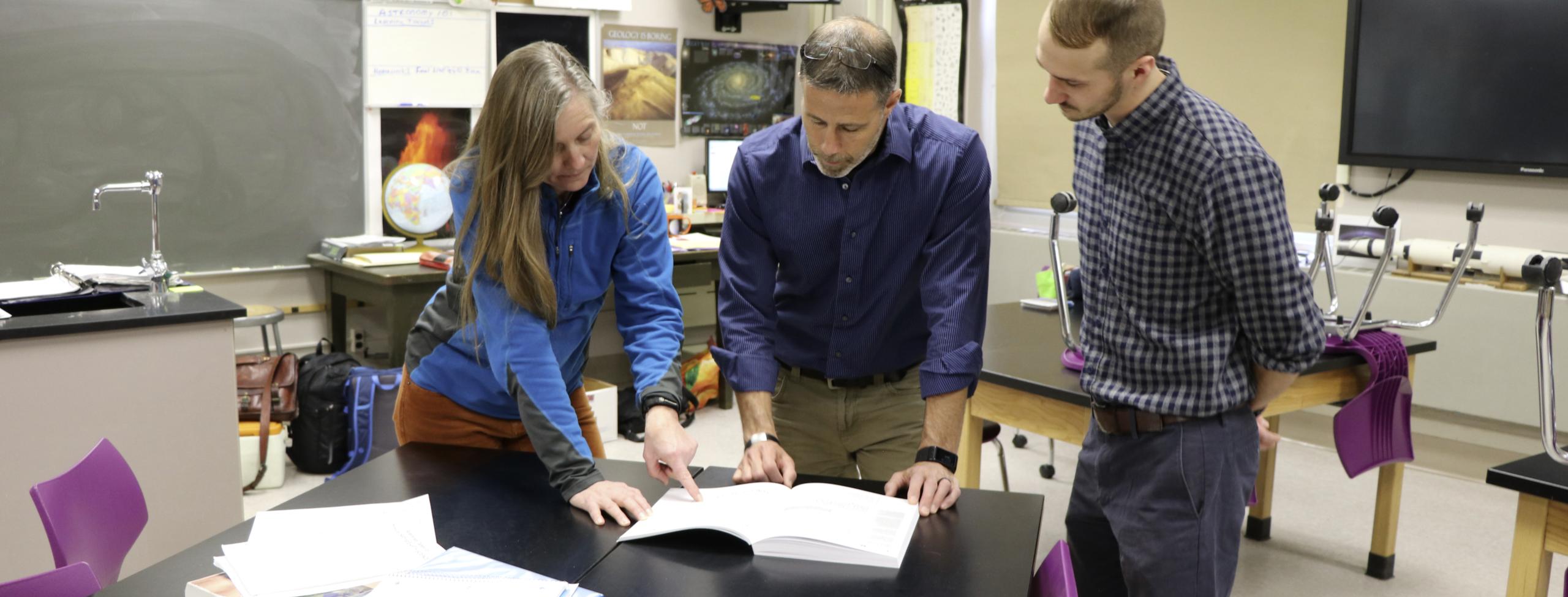A lone but confident teacher stands in front of the classroom. She is teaching an amazing lesson about climate change and the planet’s future. A hand shoots up into the air, pumping with excitement, and she thinks, “Yes, yes ... this is why I teach!” The student, face shining, then announces with much fervor that climate change isn’t really happening: it is all a made-up theory. And so the teacher’s bubble of enthusiasm instantly pops.
How might our teacher regroup and recover from this sudden setback? Simple. All she has to do is to turn to the Paleontological Research Institution’s The Teacher-Friendly Guide to Climate Change, which will prepare her to blow away each and every misconception out there about this vitally important topic. Even seasoned teachers, who have already fielded every conceivable objection to the science of climate change during their tenure, will take away new facts and ideas from this valuable teacher resource.
At NCSE, we were so impressed with this teacher guide that we recently awarded the Paleontological Research Institute (PRI) our coveted Friend of the Planet award. Ann Reid, NCSE’s Executive Director, personally presented the award to Don Haas, one of the authors and editors of the guide, during the American Geophysical Union 2019 meeting in San Francisco.



